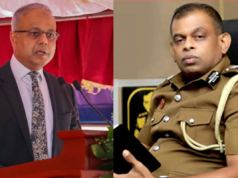by Dr. Chani Imbulgoda
Union, by definition, is the state of being together. Unions are formed for multiple purposes and reasons, including labour advocacy, social or community courses, national development, etc. Members unite with great expectations of achieving a better life for themselves and others. However, we are witnessing the fragmentation of these unions, leading to significant damage to their united purpose.
“We regret the time we spent working for this union”, and “I am ashamed of being part of this union”, are some remarks that we often hear. Every union is a collective of people with divergent views, opinions and ideologies. Human beings with all these differences are glued together to achieve common purposes. When this common purpose is unattained, unions tend to collapse, shattering trust, credibility and continuity. The success of union depends on its leaders and members.
Leadership
When the voice of the rank and file is ignored; queries of members go unanswered, and when common goals are not achieved, members turn against their leaders. Leadership styles such as narcissism, toxic leadership, and immaturity result in leaders losing their hold on unions. Poor communication reflected in the use of inappropriate tone in verbal and written communications, ambiguity and vagueness in expression, lack of communication, or too much communication, bring about leaders’ fall. Capitulation to pressure from the powers that be, and desire for personal gains, flaunting self-worth, and projecting self-image, at the cost of union actions, are some other reasons why leaders lose esteem. Some union stewards seek to elevate their personal profiles by initiating conflicts with employers, thus neglecting the true needs of the membership. Calling in union actions against authorities without testing the depth of the water raises doubts about leaders’ honesty and interests over their members. Control freaks in the leadership seek to dominate the agenda at any union meetings and stop listening to what their members’ needs are.” Not all leaders, but some remind us of the statement of the rebel leader (The Pig) in George Orwell’s novel ‘Animal Farm’.
“Comrades!’ You do not imagine, I hope, that we, pigs, are doing this in a spirit of selfishness and privilege? Many of us actually dislike milk and apples. I dislike them myself. Our sole object in taking these things is to preserve our health. Milk and apples, this has been proved by science, comrades, contain substances absolutely necessary to the well-being of a pig. We, pigs, are brainworkers. The whole management and organization of this farm depend on us. Day and night, we are watching over your welfare. It is for your sake that we drink the milk and eat those apples.”
Membership
“Do not imagine that leadership is a pleasure, and donkeys live a long time.” Failure of unions is not solely due to leadership. Membership issues also play a significant role. Sometimes, leaders treat members as donkeys, as felt by the leaders in George Orwell’s novel. Very recently, I saw some union members were expressing their frustration over the membership, describing the behaviour of fellow members. They say some members are like zombies, their presence is not felt, no opinion is expressed, some are like lizards, change colours from time to time for their personal gains, another set of members are like fish, flow with the tide, some are too loud like crows, oppose without a base. Such a mix of members in unions shatters unity and cohesiveness. Unions today, in this twenty-first century, face challenges like none other. Multiple generations with multiple attitudes, worldviews and desires, are united, by force or by passion. Heated arguments, open mudslinging, and silent observance are witnessed among members. The younger generation greatly values their privacy and free time and is not motivated to actively participate in union activities. The tech-savvy generation prefers to post views online but is reluctant to share ideological viewpoints offline. When their views are not taken on board, they charge authorities. They value diversity and inclusion. The respect for the leadership in the old days is no longer in practice, seniors and officials of unions are considered equals and subject to criticism, no sooner the expectations were shaken.
Although voiced for changes, the personal commitment of members to succeeding in common purpose is lacking. It is seen that only the frontliners participate in meetings, make decisions, and are available on call, and the rest … rest at home. This lack of commitment weakens unions, placing them in danger of survival, sans stability. Notwithstanding their own flaws, members preserve the mindset that every union battle needs to be ended up with victory is the morale of the membership. Common symptoms of membership chaos are immaturity, lack of knowledge in the matter of interest the union is formed, inability and inexperience in rational decision-making, and over-estimation of self-identity. Moreover, a lack of emotional bond with the union, or too much bond, that prevents seeing others’ positions and perspectives, and courage to speak out, as well as lack of courage, disturbs the union as seen in situations where members, without maturity in terms of knowledge and decision-making, have the courage to behave irrationally and arrogantly challenging leadership, and authorities like employers, peers, community, government, etc.
Unifying Unions
As I stated at the outset, leadership has a vital role in fostering maturity in terms of knowledge and decision-making, nourishing the identity of the members with the union, cultivating ownership, and developing competency and courage among others. The leader is the magnet that keeps the membership attached to the common purpose. Emotional bondage, an ownership, should be cultivated in the membership by the leader. The leader should be powerful, influential, charismatic and benevolent. He can be democratic and should be dictatorial when the situation demands. Leaders are builders; they build others around them infusing trust and inspiring for greater achievements. Leaders inspire members to enhance and expand their knowledge not only on the purpose of the union but also on the surrounding context. Leaders keep trust in members and let them contribute to decision-making, judgments are passed considering good and bad virtues of them. They inculcate a sense of belongingness among the members, instilling a feeling of worth in each and everyone, not as pawns on a chess board to cross. Leaders nurture confidence in members’ self-competencies and inspire courage to stand for what is right.
If unions wish to succeed in their mandate, forgetting their differences, they must unite by accepting each other. Communication plays a grave role, attentive listening, clearing doubts, and respecting each other are necessities. If union leaders still think the concept of ‘Big Brother’ (George Orwell, Novel 1942) who believes in controlling everything, including your thoughts, would make unions powerful, it is a mistake. Suppression, in any form, would shatter unions. United we win, divided we fail, so it is time for everyone to play their role, dutifully, and morally.
(The author is a senior education administrator, researcher, management consultant and a lecturer. She can be reached at cv5imbulgoda@gmail.com)








